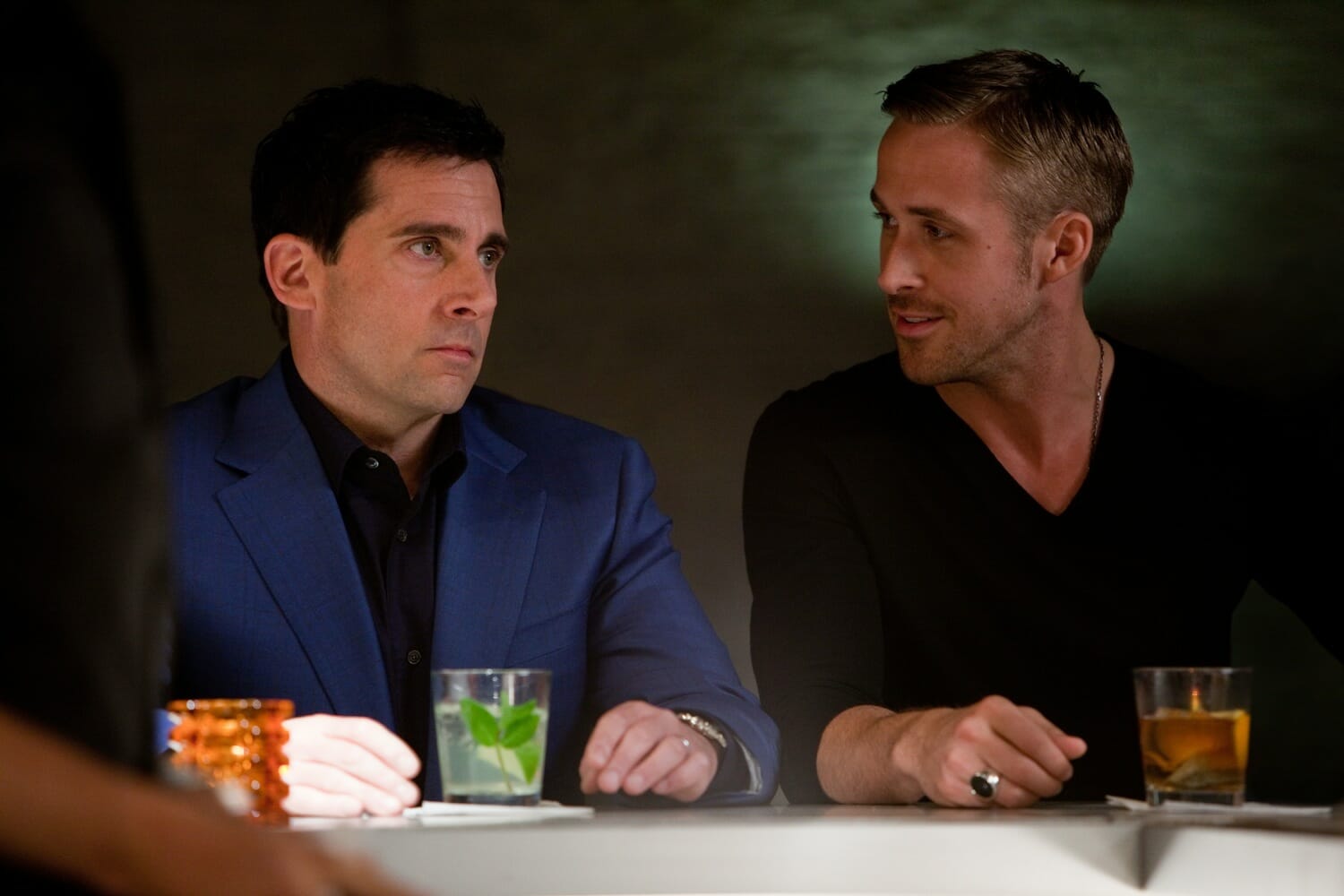Crazy, Stupid, Love. review

When a character in Crazy, Stupid, Love. sneakily copies pages from a book titled Divorce for Dummies, I began to think about a better film potentially written by Charlie Kaufman adapted from the Dummies text. As it is Crazy, Stupid, Love. is a cheaply funny, bland, forgettable comedy that offers little insight into divorce or the end of relationships.
Steve Carell plays boring father and husband Cal Weaver. When the film opens his wife, Emily (Julianne Moore), tells him that she wants a divorce after 25 years of marriage. This demand devastates him, and as you can see in the trailer, Cal is so distraught that he leaps from a moving car. Soon, he moves out and buries his sorrows at a trendy local watering hole. After striking out with most every woman in the joint, ladies man Jacob (a ripped Ryan Gosling) takes Cal on as an apprentice. Schooling Cal in the fine art of getting women to sleep with him, Cal discovers great success after bedding down a goofy teacher, played by Marisa Tomei.
Meanwhile, Cal’s 13-year-old son is struggling with a crush on his 17-year-old babysitter who just might have a thing for Cal. And Emily seeks the help of that Dummies book while being wooed by a cheesy co-worker, played by Kevin Bacon. In yet another subplot, Emma Stone is about to take the bar exam in hopes of becoming a lawyer while pining away for a bland attorney (played by crooner Josh Groban) who seems all wrong for her.
-

-

-

-

-

-

-

-

-

-

-

-

-

-

-

-

-

-

-

-

-

-

-

-

-

-

-

-

-

-

-

-

-

-

-

-

-

-

-

-








































